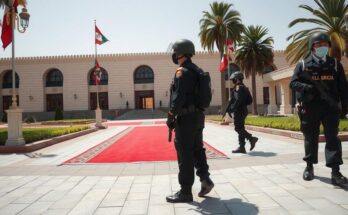This article discusses the historical roots of conflict in South Sudan, advocating for a process of re-membering to achieve sustainable peace. It highlights the necessity of confronting historical wrongs and fostering inclusive dialogues to establish a new social contract. By understanding its past, South Sudan can pave the way for a unified and peaceful future, moving beyond divisions and cycles of violence.
South Sudan, recognized as the latest nation globally, is frequently reported as a territory riddled with persistent strife marked by insecurity, power conflicts, and humanitarian emergencies. Many of the issues plaguing the country did not emerge in 2013, nor do they solely stem from factional quarrels. The foundation of South Sudan’s ongoing turmoil is its historical context, which is steeped in colonialism and conquest. This has fostered a community struggling with its identity and collective future, lacking a coherent framework for unity and coexistence.
To foster enduring peace in South Sudan, the concept of “re-membering” becomes essential. This approach seeks to mend the fractures in society through the acknowledgment and rectification of historical injustices, enabling a sincere dialogue among its people. Such reconciliation must be predicated on the revelation of truths regarding both external and internal grievances that have devastated communities.
The article outlines three critical segments. First, it underscores the importance of understanding the historical roots of South Sudan’s issues, examining the legacies of colonial oppression that divided its ethnic communities. Second, the necessity of addressing these wrongs is articulated, emphasizing the importance of a comprehensive truth-telling process that rallies the collective efforts of society. Lastly, pragmatic recommendations are provided, advocating for inclusive dialogues that pave the way for a new social contract aimed at fostering peace and shared governance, rooted in justice and equity.
South Sudan’s struggle for identity is deeply interwoven with its history of violence and neglect. The internal discord has roots reaching back to colonial times, when foreign forces exacerbated divisions among its diverse populations. As such, true peace necessitates a collective reckoning with a troubled past—a journey that must be inclusive, engaging various societal sectors including women, youth, and civil leaders.
Furthermore, national dialogues across ethnic and regional lines are crucial for building a cohesive historical narrative, facilitating an understanding of shared sufferings, and exploring collective paths to healing. By engaging all stakeholders, South Sudan can create mechanisms to ensure equitable governance, resource distribution, and communal dignity.
Finally, the path forward demands a rejection of superficial peace processes that overlook historical complexities. Instead, a foundational re-membering strategy must precede other efforts, paving the way to a renewed national identity centered on mutual respect and shared humanity that can ultimately guide South Sudan towards its aspiration of being a unified, thriving nation.
The subject involves the analysis of South Sudan’s ongoing conflicts, rooted in its tumultuous history of colonialism, internal divisions, and external influences. The country gained independence in 2011 but still grapples with the legacy of past injustices and the lack of a unified societal framework for governance and coexistence. Addressing these historical grievances is posited as the cornerstone for achieving sustainable peace and establishing a just state, necessitating a collective approach to healing and social contract reform. The approach encourages acknowledging both external and internal conflicts, aiming to unify the diverse communities of South Sudan through inclusive dialogues and narratives.
In conclusion, for South Sudan to overcome its historical legacies and forge a path toward lasting peace, it is imperative to engage in re-membering the nation. This process involves an honest confrontation with the past, establishing a shared narrative that recognizes both historical and present-day injustices. By fostering dialogues across communities and crafting a new social contract, South Sudan can aspire to transform into a cohesive society, overcoming the cycles of violence and inequity that have marred its existence since independence. Only through this thorough and inclusive quest for justice and reconciliation can the nation effectively heal and build a promising future.
Original Source: www.radiotamazuj.org




